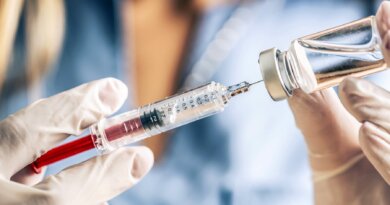Fauci Wants to Start Fighting Next Pandemic Now
MONDAY, July 26, 2021 (HealthDay News) — In an effort to avoid another pandemic in the coming years, Dr. Anthony Fauci wants to launch an ambitious plan to make prototype vaccines that could protect against pathogens from 20 families of viruses that threaten human lives.
It won’t come cheap, with the cost totaling “a few billion dollars” a year, Fauci said, and the first round of results wouldn’t emerge for at least five years. Also, a huge number of scientists would be needed to conduct the necessary studies.
“It would require pretty large sums of money,” Fauci told The New York Times. “But after what we’ve been through, it’s not out of the question.”
Using research tools that have worked with COVID-19, scientists would study the molecular structure of each virus, searching for the spots where antibodies must strike it, and figuring out how to prompt the body to make those antibodies.
“If we get the funding, which I believe we will, it likely will start in 2022,” Fauci said, adding that he has been pushing the idea “in discussions with the White House and others.”
Dr. Francis Collins, director of the U.S. National Institutes of Health, said he thought the necessary funds would be allocated and added that the project is “compelling.”
“As we begin to contemplate a successful end to the COVID-19 pandemic, we must not shift back into complacency,” Collins told the Times.
Much of the financial support would come from the agency that Fauci heads, the National Institute of Allergy and Infectious Diseases (NIAID), but additional funds that would have to be allocated by Congress, the Times reported. The institute’s budget is a little over $6 billion this year.
If a new virus was detected spilling over from animals into people, scientists could immunize people in the outbreak by quickly manufacturing the necessary prototype vaccine.
“The name of the game would be to try and restrict spillovers to outbreaks,” Dr. Dennis Burton, a vaccine researcher and chairman of the department of immunology and microbiology at Scripps Research Institute, told the Times.




